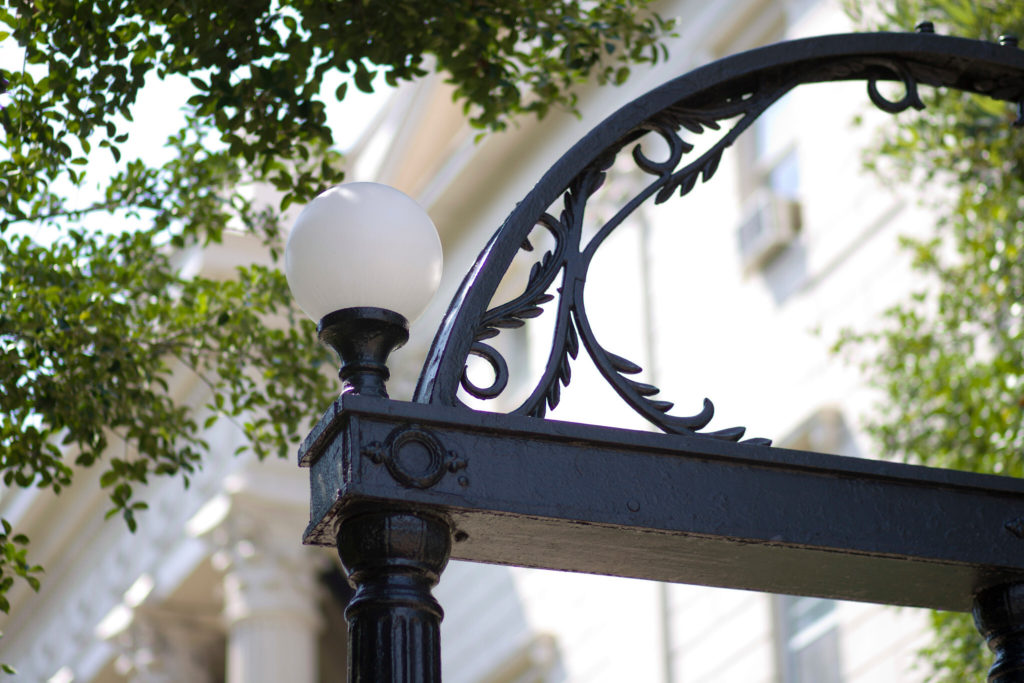Through a variety of significant investments over nearly a decade, the University of Georgia continues to demonstrate its commitment to providing safe and healthy residential communities for students to excel during their time on campus.
The latest of these efforts will take place over the upcoming winter break when the university will complete an intensive cleaning and maintenance initiative in several residence halls, including the Hill and Creswell communities. Additionally, university officials are nearing finalization of a plan, under development since late summer, to direct $20 million to renovate five first-year residence halls by 2025.
The five four-story buildings on the list — Boggs, Church, Hill, Mell and Lipscomb — were initially constructed in 1961 and currently house approximately 160 students each in double-occupancy rooms with community bathrooms.
“The health, safety and well-being of our students are always the top priority at the University of Georgia, and this applies to the residential communities our students call home during their time on campus,” said President Jere W. Morehead. “We are proud of the investments we have made since 2013 across a number of facilities to make UGA’s residential communities even better places in which our students can live and learn.”
When UGA students in Hill, Creswell and other campus residential communities exit the halls for winter break at the end of December, a team of professional cleaning and maintenance staff will focus on a deep-cleaning process for those areas in response to feedback from some residents and parents. In addition to regularly scheduled maintenance in between academic semesters that includes replacing air filters, targeted carpet cleaning and community kitchen cleaning, the enhanced deep-cleaning efforts this winter will include extensive cleaning of window air conditioning units, replacing some older air conditioning units, replacing toilet valves throughout Oglethorpe House and cleaning fan coil units at Hill and Morris halls, among other actions.
These efforts are the latest in a nearly decade-long enhanced commitment to providing a healthy living-learning environment for UGA students. Since 2013, the university has invested nearly $170 million in renovations of major building systems including plumbing, electrical, mechanical, fire, security, and heating and air. To meet the challenges presented by community living in UGA’s geographic location and outdoor environment, proactive attention has been given to air quality, including annual testing conducted by outside vendors, upgrading HVAC and air systems to the most up-to-date components, installing UV dehumidification systems, and completely renovating bathrooms and water systems.
More visibly, many of these renovations also included enhanced program, lounge and study spaces for the residents, as well as upgraded computer labs. In the larger buildings, entire lobbies, reception, security and front desk areas were modernized, including the award-winning Brumby Hall rotunda renovation and preservation.
In addition to major renovations, University Housing allocates approximately $6 million annually to conduct various improvements to life safety, security and other mission-critical components beyond normal maintenance projects. Examples include fire alarm upgrades, building roof replacements, student furniture renewals, and carpet and other flooring replacements. University Housing also has a preventative maintenance plan in place to ensure various building systems are running optimally. This is in addition to daily building services sanitation and maintenance efforts to keep bathrooms, hallways, lounges, stairwells, laundry rooms, kitchens, and public lobbies and restrooms clean and comfortable for the students.
“In addition to our regular, consistent maintenance initiatives, we’re always actively seeking ways we can enhance our commitment to clean, healthy and productive living and learning spaces for our students,” said Linda Kasper, University Housing executive director. “This latest deep-cleaning process will ensure that students return in January to clean and comfortable residential facilities they can call home.”
Recent renovations to two other first-year residence halls, which totaled more than $98 million, continue to be very well received by students. In 2018, Russell Hall, followed by Brumby Hall in 2020, underwent extensive renovations of their mechanical, electrical and plumbing systems, and student rooms and lounges were updated to better meet resident needs. These massive projects individually received statewide awards from the Georgia Trust for Historic Preservation for Excellence in Sustainable Preservation; “Two Peaches” from the Georgia Peach Green Building Certification, which recognizes building systems efficiency gains as well as the inclusion of at least 10% Georgia-based materials; the Construction Management Association of America Project Achievement Award in the category of Public Building Renovation; and the Athens-Clarke County Heritage Foundation Award for Outstanding Rehabilitation.
The university will use input and feedback from students living in these buildings to inform decision-making as it proceeds with renovation plans for the Hill Community, the details of which will be announced in the spring.
“Students who live on campus consistently perform better academically, are more engaged, and have all of the university’s resources right there,” said Victor K. Wilson, vice president for Student Affairs. “To be successful, they need to be comfortable in their home away from home, and we’re going to continue every effort possible to make sure we provide the best living environment, now and in the future.”
